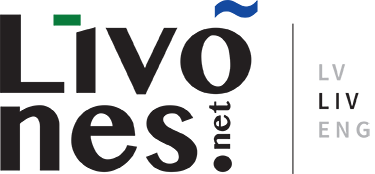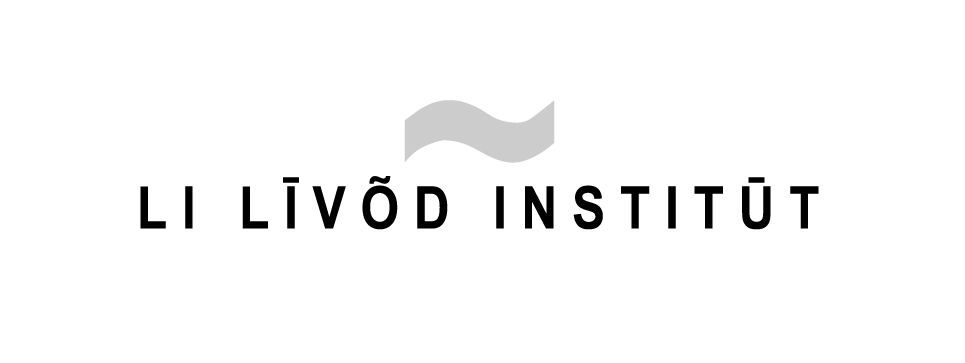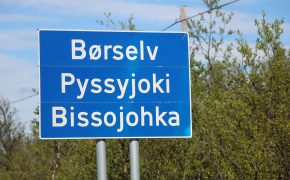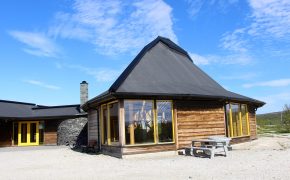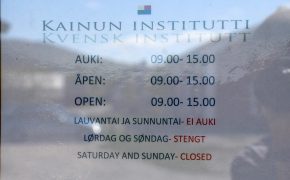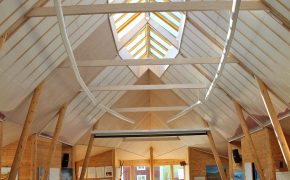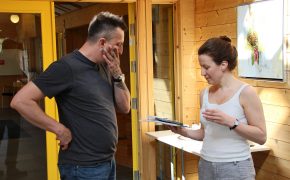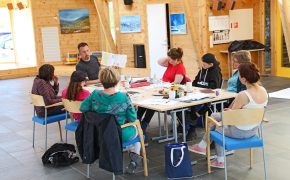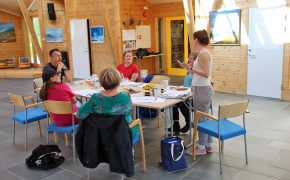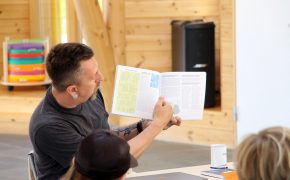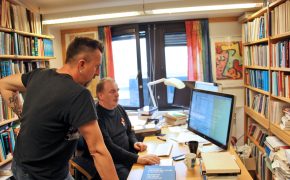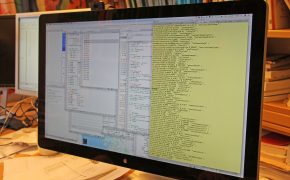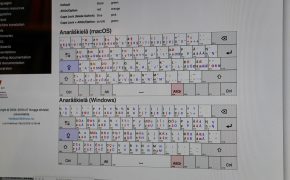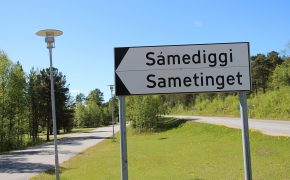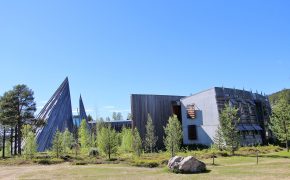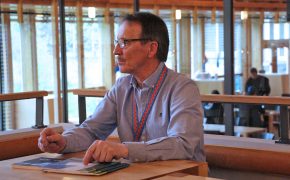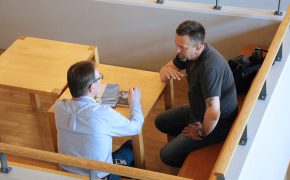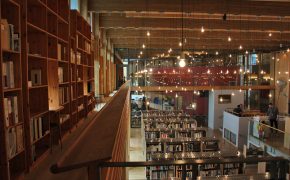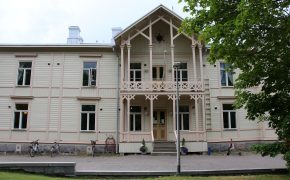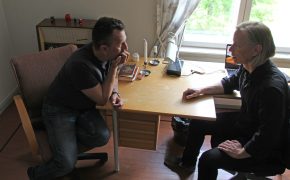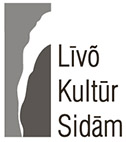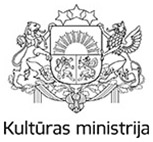In June 2019, UL Livonian Institute director Valts Ernštreits visited the institute’s colleagues in the Nordic countries – activists, keepers, and researchers of Sámi and Kven culture – acquainting them with recent developments in the maintenance and development of research and preservation of Livonian cultural heritage, while learning about their experience in maintaining and developing their own cultural heritage as well as speaking about shared hopes for the future.
During this two-week trip, most of which was spent north of the Arctic Circle, Ernštreits visited the Kven Institute (Kainun Institutti/Kvensk Institutet), which works with the maintenance and development of the language and culture of the Kvens, a minority nation of Norway, who are descended from the Finns.
The problems of Livonian and Kven language and culture preservation as well as the possibility of UL Livonian Institute researchers coming to the Kven Institute for more in-depth research and experience sharing were discussed with the director of the institute, Hilde Skanke, and the head of the language education programme, Anna-Kaisa Räisänen. During the visit, future Kven language teachers were acquainted with recent activities in Livonian language and culture research, maintenance, and education as part of a separate event. And, incidentally, representatives of the Kven community will already be visiting the Livonians this year at the annual Livonian Festival in August.
The visit with University of Tromsø professor Trond Trosterud was primarily devoted to a discussion of the experience of the UL Livonian Institute in developing electronic language tools for Livonian and the success of the Centre for Sámi Language Technology Giellatekno in developing and using Sámi and Kven language tools for language learning in an electronic environment. Giellatekno was the first to create spellchecking tools for Livonian and so Ernštreits discussed the possibility of using the data collected by the UL Livonian Institute along with the experience and abilities of Giellatekno to develop updated spellchecking tools for Livonian as well as Livonian keyboard drivers, which could be used with the most popular computer, tablet, and smartphone operating systems. As a significant part of the research of the University of Tromsø is devoted to the study of Sámi and Kven, there was discussion of possibilities for sharing experience and also researchers for minority language study as well as forming joint research groups.
This trip also included a visit to the Sámi Parliament (Samediggi) in Kárášjohka. Possibilities for Livonian and Sámi cultural exchange were discussed and parliament representative Kåre Balto gave a tour of the Sámi library located in the parliament building. Following this visit, the library now contains a number of publications relating to the Livonians. Cooperation in Sámi and Livonian language research as well as the historical influence of both languages in their respective regions was discussed with Sámi University College Guovdageidnu (Sami allaskuvla) professor Antte Aikio. Examples of accomplishments in Sámi culture maintenance and popularisation were also seen in collections devoted to Sámi culture in Inari, Kárášjohka, Tromsø, and elsewhere.
At the end of the trip, Ernštreits met with Finnish poet Olli Heikkonen in Helsinki and discussed the next steps for translating the Livonian poetry collection “Trillium” into Finnish and its publication in Finland. “Trillium” received the the Annual Latvian Literary Award earlier this year.
This trip took place as part of the State Research Programme Project “Latvian Language” (No. VPP-IZM-2018/2-0002) and with the financial support of Nordic Culture Point.
- The Kven Institute in Børselv.
- Interior view of the Kven Institute.
- Meeting with Anna-Kaisa Räisänen.
- Discussing Livonian with future Kven language teachers.
- Discussing Livonian with future Kven language teachers.
- With Trond Trosterud at the University of Tromsø.
- Sámi language tools.
- Designing keyboard drivers for Sámi.
- The Sámi Parliament in Kárášjohka.
- The Sámi Parliament in Kárášjohka.
- Kåre Balto.
- The Sámi Library.
- The Helsinki Writers’ House Villa Kivi.
- With Finnish poet Olli Heikkonen.

